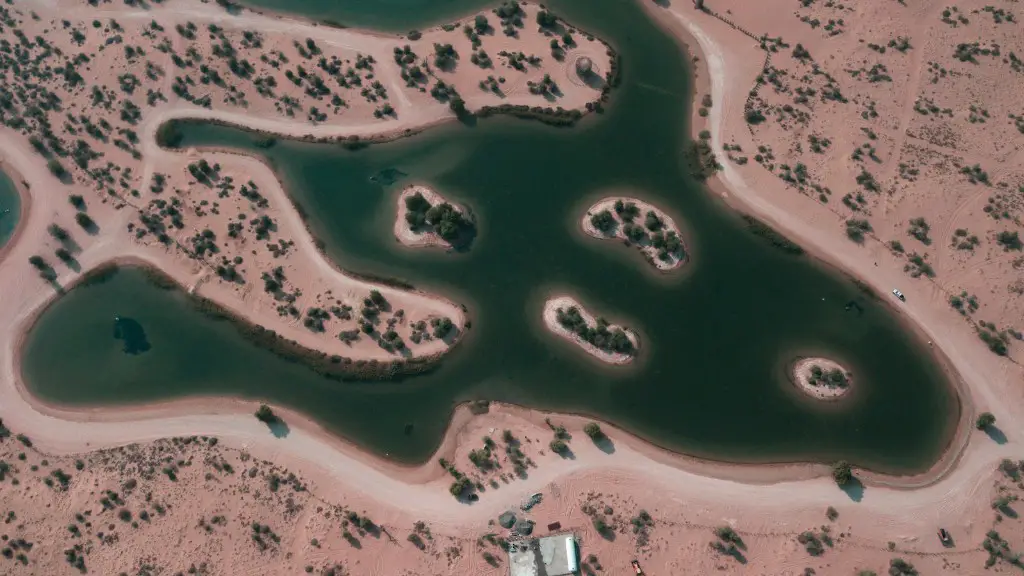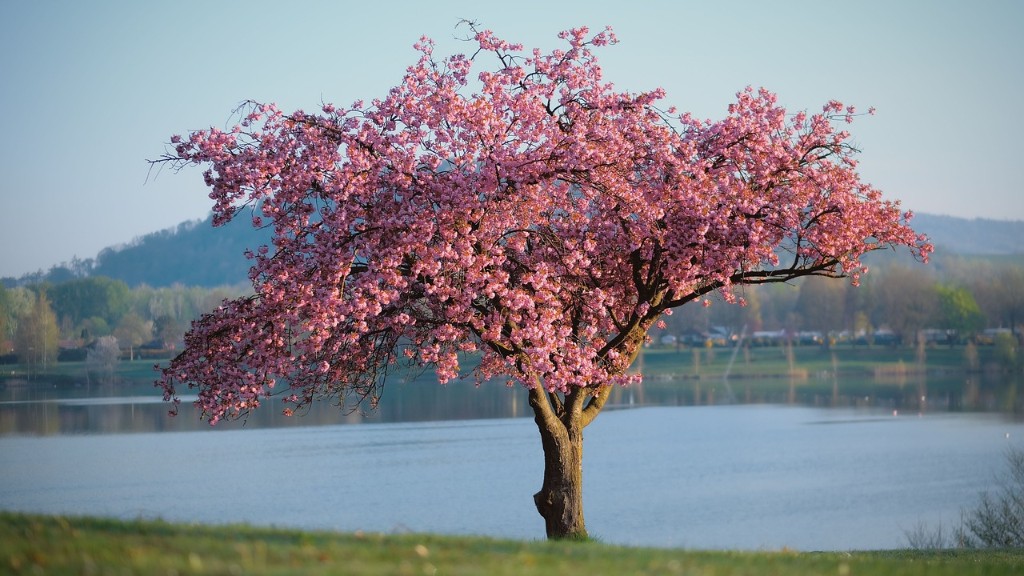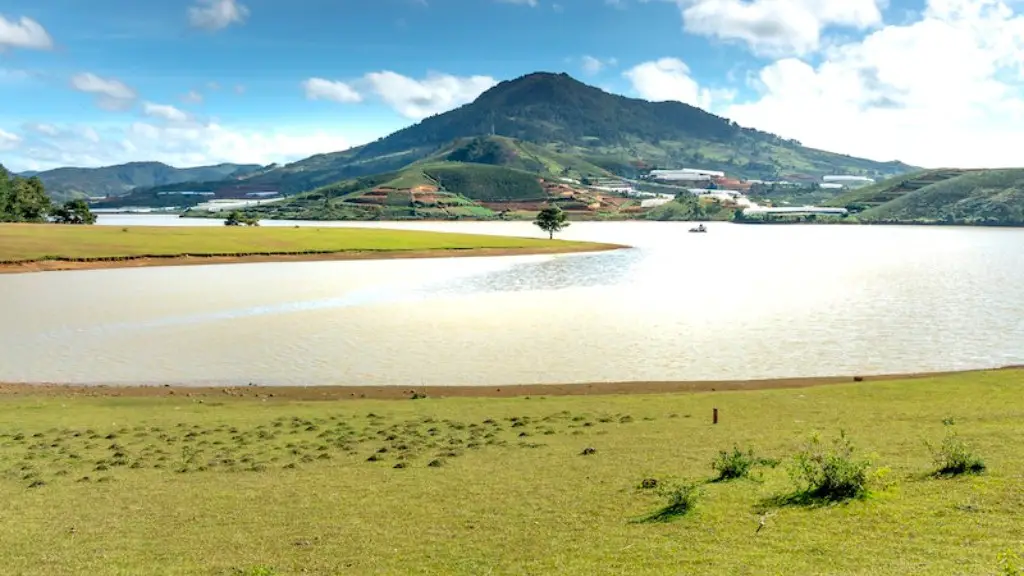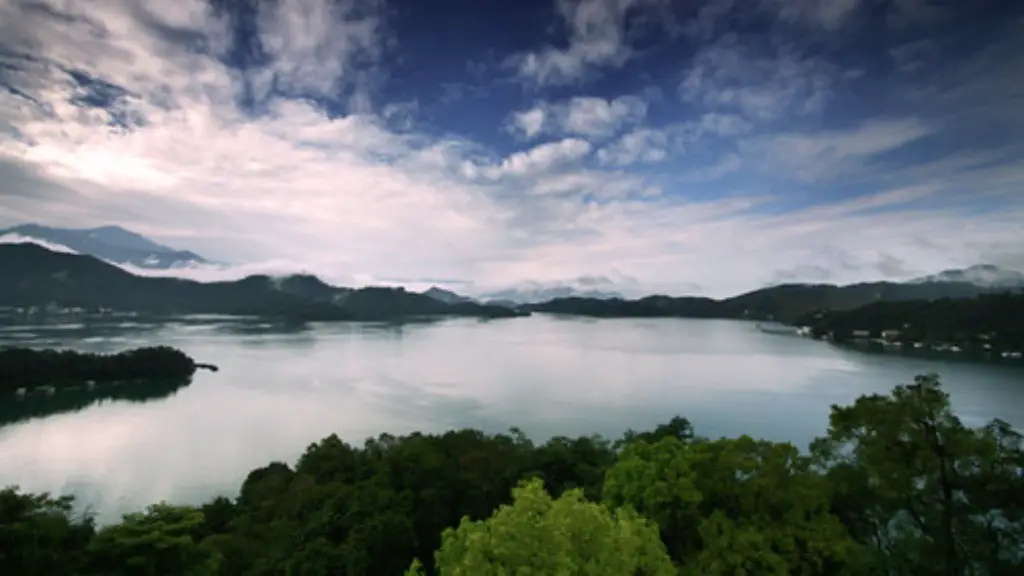Introduction
Lake Victoria is the largest lake in Africa and the second-largest freshwater lake in the world. It is a popular destination for tourists and a great source of sustenance and livelihood for the riparian countries. Located in East Africa, the lake is incredibly diverse, featuring a wealth of flora and fauna. It is home to more than 500 species of fish, along with several bird species.
Location Of Lake Victoria
Lake Victoria is located in the African Great Lakes region, in and around the three countries of Uganda, Tanzania and Kenya. These three countries share the shoreline of the lake and are among the riparian countries of the continent. The lake is situated in the eastern part of Africa and forms part of the Nile Basin, providing an important water source to the population of the adjacent countries.
Ecological Significance Of Lake Victoria
Lake Victoria has been a source of sustenance to countless generations of East Africans and plays a vital role in the local ecology. It is the home of more than 500 species of fish, making it one of the most biologically diverse freshwater systems on the planet. It also provides a great deal of economic benefits to the surrounding countries, with fishing being one of the main industries. Since the lake is the source of the Nile River, it is essential to the health of the entire region.
Environmental Challenges Of Lake Victoria
In recent years, the lake has been facing numerous environmental challenges. These include over-fishing, water hyacinth infestation, and pollution from both agricultural and industrial sources. This has resulted in an overall decrease of aquatic life as well as a severe depletion of the fish stocks. Additionally, the lake is also under threat of climate change, with rising water levels, altered weather patterns, and increased temperatures all threatening the lake’s stability.
Conservation Efforts In Lake Victoria
In response to these environmental challenges, numerous conservation efforts have been put in place by the riparian countries. This includes the establishment of buffer zones and protected areas, as well as efforts to regulate fishing and reduce pollution. These initiatives have been met with varying degrees of success, but they have been crucial in helping to protect the health of the lake and its surrounding ecosystems.
Local Communities In Lake Victoria
In addition to its ecological importance, Lake Victoria is also essential to local communities in the region. The lake has long been a source of sustenance and livelihood for people in and around the lake, who rely on its resources for their livelihoods. This includes traditional fishing, farming, and trading, as well as eco-tourism and recreational activities. Despite the environmental challenges faced by the lake, it remains a vital piece of the East African puzzle.
Impacts Of Climate Change On Lake Victoria
The effects of climate change on Lake Victoria are complicated and widespread. Rising temperatures, changes in rainfall patterns and sea levels, and increased storms, floods, and droughts could all affect the lake and the populations relying on it. For example, rising temperatures could lead to the further spread of invasives species, increased sedimentation, and the death of fish from low oxygen levels. In addition, changes in the weather could make extreme events more common, leading to flooding and other hazards.
The effects of climate change are already being felt in Lake Victoria, and it’s likely they will only become more severe in the future. This could spell disaster for the local communities that rely on the lake, as well as its unique ecosystem.
Though it can be difficult to predict exactly how climate change will impact Lake Victoria, scientists are studying the lake to better understand what potential changes may occur in the future. With this knowledge, they hope to devise strategies that will help protect the lake and its inhabitants.
Importance Of Water Management In Lake Victoria
Water management is essential for the conservation and sustainability of Lake Victoria. Effective management is needed to protect the lake from overfishing, pollution, and other challenges. It is also needed to ensure that water is used responsibly and equitably, avoiding unbalanced and wasteful practices. This could include regulating the use of water by farmers and industries, as well as introducing strategies that help conserve the lake and its resources.
Various initiatives are ongoing in the region to help with the management of Lake Victoria’s water resources. These include the development of water harvesting and storage systems, the use of water-saving technologies, and the promotion of best practices. These efforts are key in protecting the lake and its ecosystems, as well as its surrounding communities.
Issues Of Water Quality In Lake Victoria
The water quality of Lake Victoria is a major concern. Despite numerous conservation efforts, the lake is still vulnerable to pollution from agricultural and industrial sources. This, combined with natural causes such as sedimentation and eutrophication, has resulted in water that is unsuitable for drinking, swimming, and other activities. Additionally, pollution has had direct effects on the lake’s animal and plant life, as well as its agricultural lands.
The countries around Lake Victoria have implemented various measures to address the lake’s water quality issues. This includes investing in infrastructure projects, such as sewage treatment plants, and encouraging the use of best agricultural practices. Additionally, various regulatory measures have been put in place to protect the lake from further pollution.
Cultural Significance Of Lake Victoria
Lake Victoria is of immense cultural and spiritual importance to the people of East Africa. For centuries, it has been a source of sustenance and livelihood to local communities, and it is also deeply entrenched in their cultural and spiritual beliefs.
The lake is home to numerous cultural and religious sites, ranging from sacred tombs to places of worship and pilgrimage. It is also home to many traditional festivals, wherein people come together to celebrate the lake and its inhabitants. These events are important for sustaining the cultures of the surrounding communities and providing a sense of identity.
The countries around Lake Victoria have recognized the importance of protecting the lake’s cultural and spiritual significance. As such, numerous initiatives have been implemented to conserve the traditional and religious sites of the lake, as well as preserve its cultural relevance.





